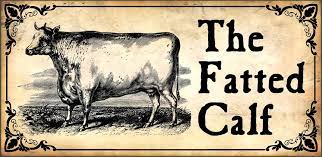Blogs

Peter and the charcoal fire
[Please read John 21:1-17]
The town I grew up in, Tellicherry in Kerla, is situated alongside the Arabian sea. My house was just 2 KM from the beautiful beach. The school I went to, St. Joseph’s, stood on a kind of cliff or highrise overlooking the sea. Throughout the stretch of the beach, there used to be villages of fishermen. People who earn their living by fishing are some of the hardest working people you will ever come across. They are up before the sun and set out for the day’s catch regardless of the weather. At times they are at the deep sea through the night. But if you ask them if they would rather do something different for a living, they will look at you and say, “Never in a million years.” Fishermen love to fish.
Jesus wants us to go fishing! We will look at it another time.
Several of Jesus’ followers were fishermen, including Peter. When he put down his nets to follow Jesus, he also gave up his lifestyle and his profession. He did that not knowing what he was getting into; he did that without a second thought; he did that much before he found out who Jesus is.
That is why it is interesting that in John 21 we encounter him back out on the water, fishing. On Saturday following the Friday Jesus was killed brutally, Peter must have decided to put his plan B into action. Surprisingly, he did not change his mind after witnessing the Resurrection of Jesus. Some scholars believe that after Peter’s three denials of Christ (Mark 14:66–72), he felt he had placed himself out of Jesus’ inner circle and therefore, retreated to his former occupation. My, non-scholarly, take on the matter is that, like all others, Peter did not understand Jesus yet. Peter certainly did not expect that Jesus would pursue him to talk about those courtyard denials. *Jesus never gives up on anyone, that includes you and me.* As I write this, I know that He is knocking on the door of my heart. I know He wants to share my grief for my son. My heart is at rest now.
Going back to our passage for today, the miraculous catch of a multitude of fish immediately got Peter’s attention (John 21:6–7). He knew Jesus was back again standing on the beach and directing his operations. You will find Jesus at unexpected turns in your life. And when you do, remember, He is not there just to give you an epiphany. He is there on purpose for you.
What caught my attention in the passage is the charcoal fire burning where Jesus was standing. I see that as a reminder to Peter of his rejection of Christ (Verse 9). The only other time where the word for charcoal fire is used was at the scene of Peter’s denials (John 18:18). After their meal, Jesus turned to Peter. He asked Peter how much he truly loved Him (John 21:15a). Peter’s declaration of loving the Lord three times did not erase his three denials just days before. However, it did create an avenue for a deeper relationship with Jesus. With each question, Jesus was giving Peter another chance. *While Peter the fisherman would finally retire, Peter the follower of Jesus, the rock on which Jesus built His Church, would never turn back again.*
No matter how many times you did a nose up and turned away from the Lord, He is always standing on the shore of your life calling you back to Himself. Are you ready to truly follow Him?

Yea, hath God said (so)?
(Genesis 3:1-7-KJV)
The very first question asked after the Creation event before sin entered human lives came from the antichrist, Satan. In the aftermath of this question, Adam and Eve went into hiding. Then came the second question from God “Where art thou?”-Genesis 3:9. These two questions are asked, one following the other, through the history of mankind and more so in our times.
The serpent represents antigod, antichrist, the adversary of God. He is malevolent and wiser than human beings. He is shrewd as he draws attention to Adam and Eve’s vulnerability, even as he distorts God’s command. He manoeuvres Eve into what looks like a sincere theological discussion but distorts it by emphasising God’s prohibition instead of His provisions. He wants God’s word to sound harsh and restrictive.
Adman’s and Eve’s decisions to eat the fruit are choices to favour their own pragmatic, aesthetic, and sensual tastes over God’s word. What is good for us is no more based on God’s prescription, but on what people think is desirable to elevate life. In short, we turn what is good into evil.
By choosing to disobey God, Adam and Eve break the relationships inherent in their being. First, their relationship together—”bone of my bones and flesh of my flesh,” as it had previously been -Genesis 2:23. This oneness is torn apart as they hide from each other under the cover of fig leaves- Genesis 3:7. Next to go is their relationship with God, as they no longer talk with Him in the evening breeze but hide from His presence-Genesis3:8
Satan’s question to the woman revealed his nature. His nature to deceive. All we need to know about Satan is this: he can never be trusted. Jesus called him the “father of lies” -John 8:44. He is the source of all lies and deception. The strategies Satan employs are manifold and work on many levels.
However, their foundation is deception. Having succeeded with the first man and woman he sowed the seed of doubt about what is godly and what is not in the hearts of people. Jesus had repeatedly warned His hearers not to be deceived by the evil one. As we get closer to the end times, Satan will be his most convincing by innovating on his deceptive work.
Satan is much stronger than us and we easily fall for his deceptions. This results in a breach of our faith and we move away from God. If Satan is persistent, God is not willing to give up on us. Jesus calls out to us “Where art thou?” The question is, do we hear His still small voice, and if we do, do we give heed to it? We may or may not. We may, for a while and then go back to our old ways. Paul in his writings was empathetic about shedding our old self and becoming a new person. So that we remain in faith, first, we must diligently give ear to God’s question. If you claim to hear His question, it only means that you are where you are not supposed to be. But that is of no consequence as it also means that you have hope in the redemptive power of Jesus. To understand this, we need the help of the scriptures, the interpretations and the applicability of God’s will for us in our lives. We need to love each other as Jesus commanded. We need to be in fellowship with other believers and lend support to and draw support from them. We cannot on our fight a terrible force like the antichrist. But we can jointly. That is why we have congregations, fellowships and communities. That is why Jesus want us to be a member of His boy the universal Church. AMEN

Like the Parable of the Good Samaritan (I cherish it), the Parable of the Prodigal Son Jesus spoke about is known within and outside the Biblical teachings. Both are applied liberally in literary circles and everyday conversation. The focus, however, revolves around the Good Samaritan and the Prodigal Son. Though both the parables may read straightforward, we learn many invaluable lessons from these and other Parables of our Lord. He sowed the seeds during His short ministry using these parables so that His disciples could reap the harvest when the time became right.
I do not intend to make you weary by narrating the story of the prodigal younger son. I am on Luke 15:29-32. We will look at the father and the elder son today. If you ask me if anyone was wronged in this parable, I would say it was the father. More than the wealth squandered away by the insolent son, the father suffered the breach in their relationship and the separation from a son he loved so much. We see him handle the situation with love, longsuffering, kindness, goodness, faithfulness, gentleness, and self-control towards both his sons. The elder son lamenting did not cause any bitterness in him. This is precisely what Jesus has gone through from the time man fell from His grace. He continues to suffer for humankind to return to Him.
We are not like the prodigal son alone, unfaithful to God’s unfathomable love and compassion but, we are like the elder son too, demanding our pound of flesh. Paraphrased, we hear the father telling the elder son, “Do not be so short-sighted, lest you become as greedy and foolish as your brother. All that we have here is yours, so keep your eyes on the bigger picture and the greater reward.”
In comparison to his brother, on casual reading, the elder son looks to be righteous. That is the way we feel about ourselves as Christians. In life, we go through the motions of living as Christ taught us. At the same time, we look for our reward. Many a time, the reward we look for could be appreciation and a pat on the back by fellow Christians, to be honoured by the society as ‘better Christians.’ Those are the ‘fatted calf’ we want in reward. The purpose of our faithful Christian service is not for a pat on the back or the approval of others. Otherwise, we are no different from the Pharisees who did their works before men and thus, as Christ declared, “Assuredly, I say to you, they have their reward” – Matthew 6:2. We would be no better than the elder son.
The sinful and inappropriate attitudes of both the sons had brought dishonour upon the father. But the father’s willingness to forgive them both provide hope for all, just as our merciful Father in heaven is compassionate to us. While the narrative ends without revealing what happened to the two brothers, it is worthwhile to imagine that there was reconciliation all around, between the two brothers and, most importantly, between the father and the sons. The breach in the relationships was healed and, the honour of the family was restored.
Our reward is not of this world but in the Kingdom of Jesus. Our reward is the compassion and forgiveness we receive from Jesus. Our reward is the redemption that Jesus obtained for us by paying a heavy price, His life. Amen
Our Nostalgic Father!

If you happen to have old photographs or videos of your children during their formative years, it would be a good idea to sit down with them and reflect on them. Show it to your children too. You will recall their innocent pranks. Tender memories of those days of loving parenting will flood your mind. Those would be days when they were utterly dependent on you, and their small accomplishments were cause for celebration. Nostalgia envelops our hearts when we think about those days.
We see a likewise nostalgic God in Hosea 11:1-4. Let us read: “When Israel was a child, I loved him, And out of Egypt I called My son. As they called them, So, they went from them; They sacrificed to the Baals and burned incense to carved images. “I taught Ephraim to walk, Taking them by their arms; But they did not know that I healed them. I drew them with gentle cords, With bands of love, And I was to them as those who take the yoke from their neck. I stooped and fed them.”
In contrast to God’s sense of nostalgia, His people responded by falling into apostasy. Backsliding is common in Christian walk. Most all backslide. But the ratio is critical here, whether it is 1:2, 1:4 or 1:more? I meant one step forward and two steps backwards, and so on. The more we walk in retrograde, the more reluctant we become to return to Jesus.
In the four verses in Hosea are hidden two critical truths. The first truth is that we are the chosen people of Jesus. We are His unique and treasured people. Recall what God said to Israel, ” For you are a holy people to the LORD your God, the LORD your God has chosen you to be a people for Himself, a special treasure above all the peoples on the face of the earth. The LORD did not set His love on you nor choose you because you were more in number than any other people, for you were the least of all peoples;” – Deuteronomy 7:6-7. What a privileged people we are! Do we recognise and fully respect this privilege God has lovingly bestowed upon us with equal commitment?
The second truth is that Jesus loves us passionately and enduringly await our return. He is willing to forgive, unconditionally, all our impertinence, disobedience, lust for wealth and power and the resultant backsliding. He quickly binds our wounds, takes care of our provisions, and walk with us as we walk through the valley of death. In substance, Jesus sticks to His covenant with us and redeem us from slavery to the snares of Satan and release us from the curse of eternal death. He sets us on the path of Salvation, to the Gates of His Kingdom. Deuteronomy 7:8 confirms this thus, “but because the LORD loves you, and because He would keep the oath which He swore to your fathers, the LORD has brought you out with a mighty hand, and redeemed you from the house of bondage, from the hand of Pharaoh king of Egypt.”
Yes, the passages we looked at today still reminds us of His chosen people’s sin then and that of ours now. But we are also reminded of His tender love for His people. Let us sit in that love today.
